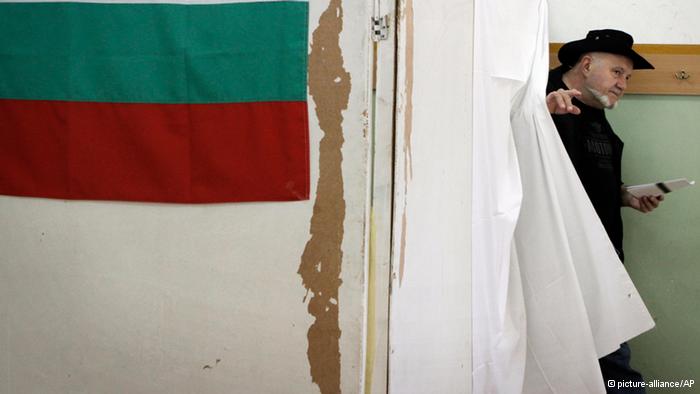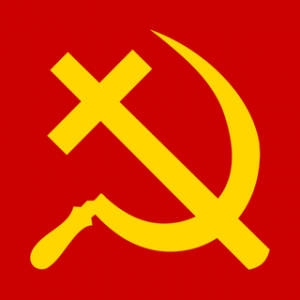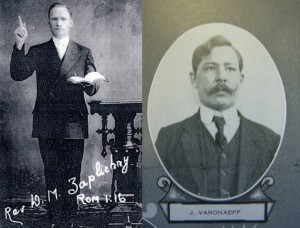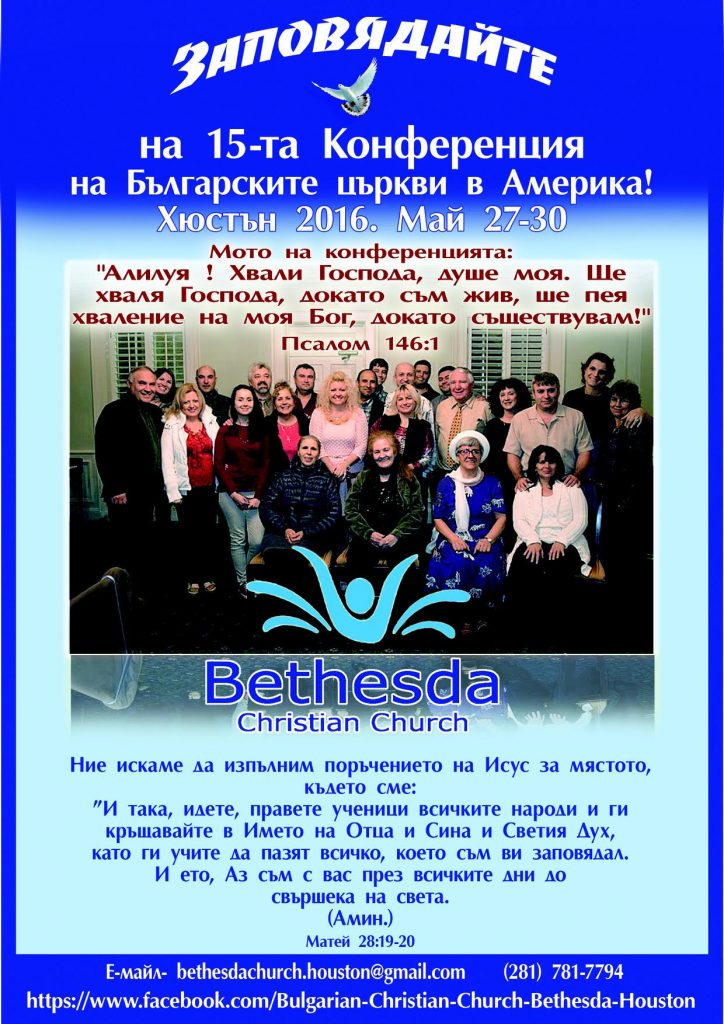Further Developments on the Master’s Degree of Chaplaincy Ministry in Bulgaria
 We are proud to announce that the Master’s of Chaplaincy Ministry Program, we designed and launched in Bulgaria in 2006, has been selected to be part of the Social Service Program of New Bulgarian University. After being for years a valuable part of the regular curriculum of the Bulgarian Evangelical Theological Institute and the St. Trivelius Institute in the capital Sofia, the chaplaincy program has received the highest level of recognition as successful graduates will be finally able to receive government recognized degrees and apply their knowledge and training in chaplaincy on a professional level. The chaplaincy program can also serve within the Integration Proposal of local NATO programs and be instrumental in dealing with the enormous wave of Middle East migrants crossing through Bulgaria today.
We are proud to announce that the Master’s of Chaplaincy Ministry Program, we designed and launched in Bulgaria in 2006, has been selected to be part of the Social Service Program of New Bulgarian University. After being for years a valuable part of the regular curriculum of the Bulgarian Evangelical Theological Institute and the St. Trivelius Institute in the capital Sofia, the chaplaincy program has received the highest level of recognition as successful graduates will be finally able to receive government recognized degrees and apply their knowledge and training in chaplaincy on a professional level. The chaplaincy program can also serve within the Integration Proposal of local NATO programs and be instrumental in dealing with the enormous wave of Middle East migrants crossing through Bulgaria today.
The Master’s Degree of Chaplaincy Ministry in Bulgaria was:
- Upgraded to the necessary educational and professional levels, applicable to the specific context of ministry in Bulgaria (December 2010)
- Presented in its upgraded form for approval before the educational board of BETI in 2011 (January 2011)
- Applied in its full capacity with the remaining modules in Theology (Spring 2011), Counseling (Fall 2011) and Master’s Thesis (exp. 2012)
- Transferred to the New Bulgarian University in Sofia under their new social worker studies program.
Also important [click to read]:
- U.S. Department of State recognizes our chaplaincy efforts in Bulgaria
- Bulgarian Chaplaincy Association: Integration Proposal with Local NATO Programs
- Bulgarian Chaplaincy Association: Vision and Resolution
- Chronology of our role and involvement in developing Church of God chaplaincy in Bulgaria since 2001
- Master’s of Chaplaincy Ministry Program in Bulgaria Reflections
- The Past Decade of Chaplaincy in Bulgaria (2006-2016)
- Related Publications and Presentations by Cup & Cross Ministries International
Historical Overview of Military, Hospital and Occupational Chaplaincy in Bulgaria

 We are proud to announce that the Master’s of Chaplaincy Ministry Program, we designed and launched in Bulgaria in 2006, has been selected to be part of the Social Service Program of New Bulgarian University. After being for years a valuable part of the regular curriculum of the Bulgarian Evangelical Theological Institute and the St. Trivelius Institute in the capital Sofia, the chaplaincy program has received the highest level of recognition as successful graduates will be finally able to receive government recognized degrees and apply their knowledge and training in chaplaincy on a professional level. The chaplaincy program can also serve within the Integration Proposal of local NATO programs and be instrumental in dealing with the enormous wave of Middle East migrants crossing through Bulgaria today.
We are proud to announce that the Master’s of Chaplaincy Ministry Program, we designed and launched in Bulgaria in 2006, has been selected to be part of the Social Service Program of New Bulgarian University. After being for years a valuable part of the regular curriculum of the Bulgarian Evangelical Theological Institute and the St. Trivelius Institute in the capital Sofia, the chaplaincy program has received the highest level of recognition as successful graduates will be finally able to receive government recognized degrees and apply their knowledge and training in chaplaincy on a professional level. The chaplaincy program can also serve within the Integration Proposal of local NATO programs and be instrumental in dealing with the enormous wave of Middle East migrants crossing through Bulgaria today.
The Country of Bulgaria in World History
The dramatic split of the Roman Empire preceded the establishment of the first Bulgarian Kingdom on the Balkan Peninsula in 681 AD. The consecutive military, cultural and economical influence of Byzantium over the Bulgarian nation claimed the newly established country to the side of the East from its birth. This propensity was sustained through the two Bulgarian Kingdoms (established respectfully in 681 AD and 1188 AD). It was renewed with even greater strength when the Ottoman Empire overtook the weakened country of Bulgaria in 1139 AD and for the next five centuries, the Orient claimed control of European Bulgaria.
In 1878, Bulgaria was liberated from the Ottoman Yoke by Russia, but only to remain under its political and economical umbrella for the next 111 years until the fall of the Berlin Wall in 1989. This event reaffirmed Bulgaria’s belongingness to the East as the country joined the Central Powers throughout World War I and deliberately remained with the Axis Powers in World War II.
Even when, on September 9, 1944, the Bulgarian Communist Revolution overthrew the monarchy and forced the country to move to the opposite camp of the war, Bulgaria’s allegiance remained with the Eastern of the Allies – the Soviet Union. This belongingness continued during the next 45 years to reform Bulgaria’s economical, political and cultural reality while transforming the Bulgarian mindset to a mentality which today remains the primary obstacle to Bulgaria’s integration in the free world.
As the country of Bulgaria is now a member of NATO and awaits acceptance into the European Union in 2007, international experts are working with various government institutions and consultant agencies to create an atmosphere in which the Bulgarian mindset can experience a new national revival in the 21st century. NATO’s involvement in this process serves as a catalyst both for reinforcing Bulgaria’s infrastructure and attracting international interest in the country’s affairs. Issues concerning national security, military involvement, international relations, economical development and ethnic diversity are continuously and carefully taken into consideration. However, one issue still remains untouched neither by NATO’s official position in Bulgaria, nor by the Bulgarian government. This is the issue of faith.
Also important [click to read]:
- U.S. Department of State recognizes our chaplaincy efforts in Bulgaria
- Bulgarian Chaplaincy Association: Integration Proposal with Local NATO Programs
- Bulgarian Chaplaincy Association: Vision and Resolution
- Chronology of our role and involvement in developing Church of God chaplaincy in Bulgaria since 2001
- Master’s of Chaplaincy Ministry Program in Bulgaria Reflections
- The Past Decade of Chaplaincy in Bulgaria (2006-2016)
- Related Publications and Presentations by Cup & Cross Ministries International
Brief Historical Overview of Chaplaincy in Bulgaria
It is true that clear documentation for the presence of chaplaincy in Bulgaria may be difficult to produce, especially according to any modern definition of chaplaincy ministry. However, it would not be unfounded to claim that the practice of military priests acting as chaplains in the Bulgarian Army dates back to at least Bulgaria’s national conversion to Christianity under King Boris I in 863AD. Having adopted virtually all the characteristics of a religious state from Byzantium, Bulgaria utilized priests and liturgy in its military forces.
During the time of the Ottoman Empire, the tradition of military priests ceased, as naturally Bulgaria had no army. However, foreign representatives continuously carried the ministry of chaplaincy through the Bulgarian lands. Around the 14th century, immigrants from Dubrovnik found a diaspora in Sofia. In 1486, they built the Patrum S. Franscisci Cathedral. The assigned priest also ministered as a community chaplain.[1] In the 16th century, German theologian Stephen Gerlah traveled through Bulgaria as a secretary to the protestant ambassador to Constantinople. Gerlah reports of the religious intolerance toward the Bulgarian population.[2]
Every military force dispatched to Bulgaria arrived with a chaplain. For example, British chaplains were active during the Crimean War.[3] In 1860, Principle Chaplain to the forces of the East, H.P. Wright reported an outburst of cholera in the General Hospital at the Black Sea port of Varna.[4]
After the liberation from the Ottoman Yoke in 1878, the Missionary Herald reports: “The Protestant preacher from Adrianople is just in. …. The governor of Southern Bulgaria, who resides there, is a Russian general, and is a strong Protestant.[5] He has Protestant services (conducted by his chaplain) every Sabbath, at the government house.”[6]
In 1879, the German prince Alexander Battenberg was enthroned in Bulgaria. The new monarch arrived with a personal chaplain, a Lutheran minister by the name of Adolf Koch.[7] Koch was instrumental in organizing a commune of German immigrants and holding regular protestant services in a specially designed building. The royal entourage, German families, Austrian and Swiss merchants and bankers and Russian officers, attended these services.[8]
At approximately the same time, Bulgarian Orthodox priest resumed their position with the armed forces in various conflicts. Orthodox priests actively participated in the Russian-Turkish (1877-1878) and the Serbo-Bulgarian (1885) wars. It was during this period that the Bulgarian chaplaincy tradition was reestablished under the title “garrison priest” and Vladimir Solovyov first discussed the theology of war. The role of the Bulgarian Orthodox Church continues to be present during combat throughout the Balkan Wars (1912-1913), often called the “Orthodox Holy War” and “The Last Crusade.” Orthodox chaplaincy is also present in the two World Wars, but the orthodox theology of war viewing Bulgaria as the “New Israel” was completely destroyed when Communism overthrew the monarchy establishing a new regime.[9] Religion was rejected as “opium of the masses” and the military chaplain for the next 45 years was replaced by the regiment’s politcommissar.
[1] Kratak Istoriheski Pregled. http://www.bukvite.com/studio/teoria.php?lid=48 (August 1, 2006).
[2] Stephen Gerlah, Dnevnik na edno patuvane do Osmanskata porta v Carigrad (Sofia: Izdtelstvo OF, 1976).
[3] Frances Duberly. Journal kept during the Russian War. (London: Longman, Brown, Green, and Longmans, 1855). Also, William W. Hall, Purtans on the Balkans (Sofia: n/a, 1938), 49, 61 and 249.
[4] “Realities of Paris Life”. The Dublin University Magazine: A Literary and Political Journal. Vol. LV (January-June, 1860), 166.
[5] Perhaps reference of general Arcadii Stolipin, who served as the governor of Eastern Rumelia after Bulgaria was divided by the San Stefano Treaty of 1878.
[6] “European Turkey Masson.” The Missionary Herald, Containing the Proceedings of the American Board. (July, 1878:74, 7).
[7] Report Girl’s School, 1881. Archive: American Board of Commissioners for Foreign Missions, Vol. I, 146. Annual Report, American Board of Commissioners for Foreign Missions, 1882, 26.
[8] H. Mayer, Die Diaspora der Deutshen Evangeliscen Kirche in Rumanien, Serbien und Bulgarien (Postdam, 1901), 440.
[9] Svetlozar Eldarov, Pravoslavieto na Voina (Sofia: Sv. Georgi Pobedenosec, 2004).
The Restoration of Chaplaincy in Bulgaria (History of Events)
 We are proud to announce that the Master’s of Chaplaincy Ministry Program, we designed and launched in Bulgaria in 2006, has been selected to be part of the Social Service Program of New Bulgarian University. After being for years a valuable part of the regular curriculum of the Bulgarian Evangelical Theological Institute and the St. Trivelius Institute in the capital Sofia, the chaplaincy program has received the highest level of recognition as successful graduates will be finally able to receive government recognized degrees and apply their knowledge and training in chaplaincy on a professional level. The chaplaincy program can also serve within the Integration Proposal of local NATO programs and be instrumental in dealing with the enormous wave of Middle East migrants crossing through Bulgaria today.
We are proud to announce that the Master’s of Chaplaincy Ministry Program, we designed and launched in Bulgaria in 2006, has been selected to be part of the Social Service Program of New Bulgarian University. After being for years a valuable part of the regular curriculum of the Bulgarian Evangelical Theological Institute and the St. Trivelius Institute in the capital Sofia, the chaplaincy program has received the highest level of recognition as successful graduates will be finally able to receive government recognized degrees and apply their knowledge and training in chaplaincy on a professional level. The chaplaincy program can also serve within the Integration Proposal of local NATO programs and be instrumental in dealing with the enormous wave of Middle East migrants crossing through Bulgaria today.
05/12 Anticipated Date for Graduation of the First Cohort of Master’s Program of Chaplaincy Ministry in Bulgaria
2011
09/11 – Master’s of Chaplaincy Ministry Program Module 3: Counseling Completed
07/11 – Master’s of Chaplaincy Ministry Program Module 2: Theology Completed
03/11 – Master’s of Chaplaincy Ministry Program approved by the Educational Committee of the Bulgarian Evangelical Theological Institute
01/11 – Master’s of Chaplaincy Ministry Program Continues
2010
10/10 – Master’s of Chaplaincy Ministry Program Module 1: Chaplaincy Completed
09/10 Master’s of Chaplaincy Ministry Program begins in Sofia, Bulgaria
06/10 Chaplaincy Conference and Master’s of Chaplaincy for Bulgaria
01/10 Proposal masters program finalized and submitted for approval to the Educational Committee of the Bulgarian Evangelical Theological Institute
2009
10/09 Bulgarian Chaplaincy Association holds an introductory chaplaincy course in Yambol, Bulgaria
2008
12/08 Family Seminar for Military Men and Women held in Yambol
11/08 Bulgarian Chaplaincy Association Annual Meeting
09/08 – Bulgarian Chaplaincy Associations noted in Church of God publications
06/08 – The Case of a NATO Chaplaincy Model within the Bulgarian Army released
06/08 – Celebrating 10 Years of Military Ministry in Bulgaria
2007
10/07 – Bulgarian Chaplaincy Associations Recognized by U.S. Department of State
07/07 – National Chaplaincy Conference in Yambol, Bulgaria
03/07 – Bulgarian Chaplaincy Association was officially registered
02/07 – Bulgarian Chaplaincy Association gains legal status
01/07 – Bulgarian Chaplaincy Assassination noted by international religious freedom watch dog Forum 18
2006
12/06 – Registration Rejected Bulgarian Chaplaincy Association by Bulgarian court
11/06 – A master program in chaplaincy ministry has been proposed for the Bulgarian Evangelical Theological Institute in Sofia
10/06 – Bulgarian Chaplaincy Association Founder’s Meeting in Sofia, Bulgaria
10/06 – A contextualized course for chaplaincy ministry is offered at the Bulgarian Evangelical Theological Institute in Sofia
08/06 – Bulgarian Chaplaincy Association’s Resolution No. 1 sets course toward chaplaincy in churches, education and government institutions
07/06 – National Chaplaincy Meeting in Yambol, Bulgaria
06/06 – Meeting with NATO Chaplains
05/06 – Cup & Cross Ministries submitted a research paper to NATO’s Manfred Wörner Foundation dealing with the case of underground chaplaincy within the Bulgarian Armed Forces
03/06 – A contextualized course for chaplaincy ministry was offered in Veliko Turnovo
02/06 – www.kapelanstvo.com was released to serve as the official website of the chaplaincy movement in Bulgaria
2005
10/05 – A national training seminar held in Veliko Turnovo
10/05 – The Bulgarian Chaplaincy Association was presented before the Bulgarian Evangelical Alliance
09/05 – Regional meeting in Nova Zagora which addressed the current issues
08/05 – A regional chaplaincy meeting in Sliven
07/05 – Publication of camouflage New Testaments and Bibles, some of which we distributed to Bulgarian army personal including the divisions currently serving in Iraq.
Also important [click to read]:
- U.S. Department of State recognizes our chaplaincy efforts in Bulgaria
- Bulgarian Chaplaincy Association: Integration Proposal with Local NATO Programs
- Bulgarian Chaplaincy Association: Vision and Resolution
- Chronology of our role and involvement in developing Church of God chaplaincy in Bulgaria since 2001
- Master’s of Chaplaincy Ministry Program in Bulgaria Reflections
- The Past Decade of Chaplaincy in Bulgaria (2006-2016)
- Related Publications and Presentations by Cup & Cross Ministries International
Chaplaincy in Bulgaria: Celebrating 10 Years of Bulgarian Chaplaincy Association
 Bulgarian Chaplaincy Association: Celebrating a Decade of Ministry
Bulgarian Chaplaincy Association: Celebrating a Decade of Ministry
We are proud to announce that the Master’s of Chaplaincy Ministry Program, we designed and launched in Bulgaria in 2006, has been selected to be part of the Social Service Program of New Bulgarian University. After being for years a valuable part of the regular curriculum of the Bulgarian Evangelical Theological Institute and the St. Trivelius Institute in the capital Sofia, the chaplaincy program has received the highest level of recognition as successful graduates will be finally able to receive government recognized degrees and apply their knowledge and training in chaplaincy on a professional level. The chaplaincy program can also serve within the Integration Proposal of local NATO programs and be instrumental in dealing with the enormous wave of Middle East migrants crossing through Bulgaria today.
It has taken over 10 years since the envisioning of the Master’s of Chaplaincy Ministry in Bulgaria for its final realization in the Bulgarian national and cultural context. Through this time of struggle and anticipation, we encountered a number of obstacles as follows:
- Government difficulties on various levels within the Bulgarian administration and a direct repression from the Ministry of Justice, which was later included in the Religious Freedom report of the U.S. Department of State
- Administrative difficulties with approving the program as a legal educational process, while no legal background of chaplaincy had ever been provided in Bulgaria
- Economic difficulties with arranging location and time placement for the program, lecturers, the very much needed student scholarships and various other academic expenses
- Proper student selection through a special screening process to ensure only qualified candidates for placement within the Master’s Program
- And of course, spiritual difficulties with the whole process of establishing chaplaincy in Bulgaria again being a definite spiritual warfare for all participants
Now, that the Bulgarian Chaplaincy Program is an undeniable fact, we realize how our training was more than just a necessity for the implementation of such a great task. It was also well sufficient for a time as such.
With the crises within the Bible College system of Bulgaria and the potential change of status for the Bulgarian Evangelical Theological Institute (Theological Seminary) in Sofia, the professional programs offered thus far will have to be assimilated into some liberal art schools with a newly evaluated perspective on Christian education in Bulgaria or they will be forever lost.
In this context, some modifications may be required in the process to reflect more on these changes and their effects for the Chaplaincy Program as well as on the social role of chaplaincy in Bulgaria. Such search for equilibrium is only normal given that historically Bulgaria has placed chaplaincy ministry only within the perimeter of army, prisons and hospitals.
The final goal in our educational strategy, which directly targets legislation and practical implementation of chaplain ministry within various levels of government infrastructure, now remains for the student chaplains graduating with a masters degree specifically designed for their area of ministry from our program. Cooperation with a vast social network for this task is a must, and our students are already well trained through a practicum that strongly demands their cooperative work together.
And while the Bulgarian armed forces still remain the only one within the structures of NATO that has no chaplaincy whatsoever, professional Chaplaincy, as we foresaw it a decade ago, will most probably begin with a new vision within the reformed infrastructure of the Bulgarian army and shortly afterwards move to other professional branches as well.
Also important [click to read]:
- U.S. Department of State recognizes our chaplaincy efforts in Bulgaria
- Bulgarian Chaplaincy Association: Integration Proposal with Local NATO Programs
- Bulgarian Chaplaincy Association: Vision and Resolution
- Chronology of our role and involvement in developing Church of God chaplaincy in Bulgaria since 2001
- Master’s of Chaplaincy Ministry Program in Bulgaria Reflections
- The Past Decade of Chaplaincy in Bulgaria (2006-2016)
- Related Publications and Presentations by Cup & Cross Ministries International
15th Annual Conference of Bulgarian Churches in North America Building Bridges to Church and People in Bulgaria
Church of God Chaplaincy in Bulgaria: In the beginning…
 Bulgarian Chaplaincy Association: Celebrating a Decade of Ministry
Bulgarian Chaplaincy Association: Celebrating a Decade of Ministry
We are proud to announce that the Master’s of Chaplaincy Ministry Program, we designed and launched in Bulgaria in 2006, has been selected to be part of the Social Service Program of New Bulgarian University. After being for years a valuable part of the regular curriculum of the Bulgarian Evangelical Theological Institute and the St. Trivelius Institute in the capital Sofia, the chaplaincy program has received the highest level of recognition as successful graduates will be finally able to receive government recognized degrees and apply their knowledge and training in chaplaincy on a professional level. The chaplaincy program can also serve within the Integration Proposal of local NATO programs and be instrumental in dealing with the enormous wave of Middle East migrants crossing through Bulgaria today.
But let us backup just a moment and start from the very beginning. In the summer of 1995, while pioneering the first Bulgarian church in the Chicago Metro, the local Church of God state office offered a civil chaplaincy training course for beginners. Unfortunately, due to our heavy church schedule, the chance to attend was low and virtually unobtainable. It was not until five years later that our interest in the field was finally rewarded, as in the summer of 2000 both my wife-to-be and I completed the required course work for chaplaincy accreditation, followed by an intense module at the Erlanger Hospital in Chattanooga, where essentially the whole idea for the resurrection of chaplaincy ministry in Bulgaria was born.
Today, our Master’s of Chaplaincy Ministry Program has produced a number of graduates who are serving in various chaplaincy positions and civil services in Bulgaria. Please continue to pray for all our named and unnamed chaplains on mission. (Click here to read more)
Also important [click to read]:
- U.S. Department of State recognizes our chaplaincy efforts in Bulgaria
- Bulgarian Chaplaincy Association: Integration Proposal with Local NATO Programs
- Bulgarian Chaplaincy Association: Vision and Resolution
- Chronology of our role and involvement in developing Church of God chaplaincy in Bulgaria since 2001
- Master’s of Chaplaincy Ministry Program in Bulgaria Reflections
- The Past Decade of Chaplaincy in Bulgaria (2006-2016)
- Related Publications and Presentations by Cup & Cross Ministries International
Voting in Government Elections is Now Mandatory in Bulgaria
 Bulgaria’s parliament paved the way for the introduction of compulsory voting in elections on Thursday, passing a draft bill to amend the electoral code at its first reading.
Bulgaria’s parliament paved the way for the introduction of compulsory voting in elections on Thursday, passing a draft bill to amend the electoral code at its first reading.
1. The last national election in 2014 saw the lowest turnout in 25 years, of about 48%
2. A big factor is popular disenchantment with what is seen as a corrupt and out-of-touch political elite that has failed to lift living standards
3. In 2013, voter frustration with rampant corruption and organized crime erupted into months of street protests
4. Concerns about corruption and the judiciary have also kept Bulgaria and northern neighbor Romania out of the EU’s borderless Schengen zone
5. European Union member Bulgaria has had five governments in less than three years
6. Presidential elections are due in October and elections for a new parliament in 2018
7. Voting will be mandatory done personally by voters
8. The bill passed on Thursday allows non-voters to be sanctioned, either by a citation or by having their social benefits withdrawn for three months
9. Under the new measures approved by parliament, those failing to cast ballots will be deleted from voting registers and will need to register again
10. Bulgarian citizens living abroad would be able to vote only in Bulgarian embassies i.e. London and Ireland for the U.K. and Washington, D.C. and Chicago in the United States, eliminating the greater majority living at other locations.
New Socialist Attack on Religious Freedom in Bulgaria
 Over 26 years after the fall of the communist regime, the socialists left are reintroducing a new war against Christianity and religious freedom in Bulgaria. Two weeks after the introduction of draconian bill by George Kadiev, imposing full state control over believers and churches, the socialist parliamentary group filed in the registry of the National Assembly on March 14th a broader bill to restrict religious liberty in Bulgaria via government regulations according to which unregistered religions (faith confessions) have no right to:
Over 26 years after the fall of the communist regime, the socialists left are reintroducing a new war against Christianity and religious freedom in Bulgaria. Two weeks after the introduction of draconian bill by George Kadiev, imposing full state control over believers and churches, the socialist parliamentary group filed in the registry of the National Assembly on March 14th a broader bill to restrict religious liberty in Bulgaria via government regulations according to which unregistered religions (faith confessions) have no right to:
- Hold religious meetings;
- Create and maintain charitable or humanitarian institutions;
- Write, issue and disseminate religious publications;
- Have educational establishments;
- Collect and receive unsanctioned donations;
- Associate or confide with people and communities at home or abroad on subjects of religion and religious issues.
In practice, the new bill introduces a new form of compulsory registration of believers by the state. The left socialist legislators seek to repeal fundamental human rights enshrined in Bulgaria’s Constitution and the European Convention for the Protection of Human Rights and Fundamental Freedoms (ECHR), as follows:
- The right to freedom of thought (Art. 9 ECHR and Art. 37 CRB)
- The right of forming beliefs and the non-obligation to give information about one’s convictions (Art. 38 CRB, Art. 9 ECHR)
- The right to freedom of conscience and religion (Art. 9 ECHR Art. 37 CRB)
- Freedom of speech, press and media (Art. 40 CRB)
- Right of expression (art. 10 ECHR, Art. 39 CRB)
- Freedom to collect and disseminate information (Art. 41 of the CRB; Art. 10 ECHR)
- Freedom of assembly indoors without permission from the authorities (Art. 43 of the CRB, Art. 11 ECHR)
- The right to freedom and confidentiality of correspondence (Art. 34 CRB; cf. Art. 8 ECHR)
- Revocation of the right to freedom of association (art. 11 ECHR Art. 44 CRB).
In the unfortunate event that this bill passes under the law, it will impose, the already prohibited by the Constitution, obligatory state ideology. It will also violate separation between church and state, according to which the state cannot interfere in the internal life of churches and religious communities. Furthermore, in attempt to limit the freedom of the people, it will impose expressed governance and control of faith, beliefs and personal conviction; thus, endangering fundamental human rights and freedoms inherent to democracy.
The Past Decade of Chaplaincy in Bulgaria (2006-2016)
 February 16, 2006: Web presence and web identity created
February 16, 2006: Web presence and web identity created
February 21, 2006: Shall military chaplaincy be restored in the Bulgarian Army (publication in MediaPool – Bulgaria)
2006: Participant in the establishment of the Bulgarian Chaplaincy Association
August 19, 2006: Published Resolution No. 1 of the Bulgarian Chaplaincy Association
October 17, 2006: Conducted basic chaplaincy course for the Bulgarian Evangelical Theological Institute
December 2006: “The case of Underground Chaplaincy in Bulgaria,” research of the chaplaincy initiative in Bulgaria presented to the NATO’s Manfred Warner Foundation
March 2, 2007: Bulgarian Chaplaincy Association obtained legal status in Bulgaria and Europe
September 14, 2007: The US State Department of State reflected the Bulgarian Chaplaincy Association
July 13, 2008 Obtained accreditation for a Masters Degree in Chaplaincy Ministry
July 2009: Approved the “Master’s Program in Pastoral Care and Chaplaincy” with the Bulgarian Evangelical Theological Institute
June 2010: Lecture on “Military Chaplaincy” at First Evangelical Congregational Church in Sofia, Bulgaria
July 2010: Published “The beginnings of master’s chaplaincy training program” in the ARMY Bulgarian newspapers
August 2010: Cumulative update on Chaplaincy in Bulgaria
November 22, 2010: Held “Master’s Program in chaplaincy ministry” at the United Theological Faculty of the Bulgarian Evangelical Theological Institute
September 7, 2011: Published a LEGAL FRAMEWORK of CHAPLAINCY in BULGARIA
2012: Sponsored a new master’s program with focus on Social Services and Chaplaincy Ministry at St. Trivelius, alongside New Bulgarian University
More on the topic:
- Protestant Chaplaincy in Bulgaria
- Priests in the Bulgarian Army
- The printing of the camouflage New Testament in Bulgarian
- Visit of chief chaplain col. John Stefro
- Major General Bob Deese in Bulgaria
- Polish chief chaplain Mirono in Varna
95th anniversary of the Pentecostal movement in Bulgaria
 The church in Bulgaria is celebrating the 95th anniversary of its Pentecostal movement in 2015. We were able to participate in this season of celebration and honoring heroes of the faith through a series of lectures and video broadcasts on various topics of Pentecostal history, doctrine and praxis. Additionally, in 2015 we were able to prepare and publish a Bulgarian Prayer New Testament and the Bulgarian translation of Ivan Voronaev’s biography we authored back in 2010. We are thankful to the Lord for this opportunity to minister to the Bulgarian congregation and are looking forward to the Azusa Revival anniversary in 2016.
The church in Bulgaria is celebrating the 95th anniversary of its Pentecostal movement in 2015. We were able to participate in this season of celebration and honoring heroes of the faith through a series of lectures and video broadcasts on various topics of Pentecostal history, doctrine and praxis. Additionally, in 2015 we were able to prepare and publish a Bulgarian Prayer New Testament and the Bulgarian translation of Ivan Voronaev’s biography we authored back in 2010. We are thankful to the Lord for this opportunity to minister to the Bulgarian congregation and are looking forward to the Azusa Revival anniversary in 2016.








